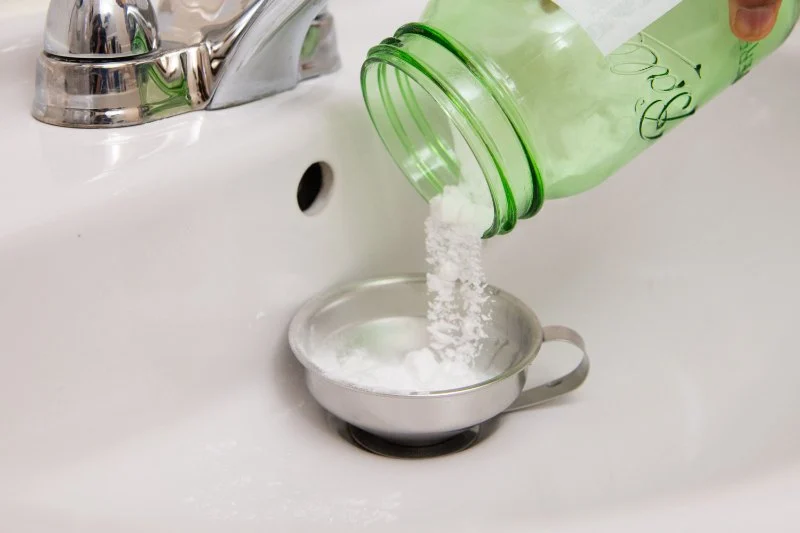
Using Baking Soda and Vinegar to Clear Clogged Drains
- 1- Understanding Drain Clogs
- 2- Why Baking Soda and Vinegar Work
- 3- How to Use Baking Soda and Vinegar to Unclog Drains
- 4- Additional Tips for Drain Maintenance
- 5- When to Call a Plumber
Clogged drains are a common household issue, but many homeowners are hesitant to use harsh chemicals for unclogging them. Fortunately, a simple and natural solution exists: baking soda and vinegar. This powerful combination can help clear most clogs without damaging your pipes or the environment. In this article, we’ll explain how to safely and effectively use these common household ingredients to clear clogged drains.
1- Understanding Drain Clogs
Drain clogs can happen for a variety of reasons, including the accumulation of grease, hair, soap scum, food particles, and mineral buildup. Over time, these materials can cause a blockage, restricting the flow of water. In the worst cases, a complete clog can occur, leading to slow drainage or even standing water in your sink or shower.
Before using any method to clear a clog, it’s important to identify the cause of the blockage. Minor clogs can often be solved with DIY methods, while more severe blockages may require professional intervention.

Lancaster Plumbing & Drain
117 W Main St Suite 207F, Lancaster, OH 43130, USA
2- Why Baking Soda and Vinegar Work
Baking soda and vinegar are both effective cleaning agents, and when combined, they create a fizzy reaction that helps break down clogs. Here’s how they work:
1. Baking Soda: The Abrasive Cleaner
Baking soda is mildly abrasive, which helps to dislodge food particles and debris that can form blockages in your pipes. It also has deodorizing properties that neutralize odors, leaving your drains smelling fresh.
2. Vinegar: The Natural Acid
Vinegar, particularly white vinegar, is acidic and can dissolve grease, soap scum, and mineral deposits that contribute to drain clogs. Its acidity helps to break down and dissolve the buildup that causes blockages.
When combined, baking soda and vinegar react with each other, producing carbon dioxide gas, which creates bubbles that help loosen debris and clear blockages. This natural reaction is effective at breaking down a wide range of materials that clog drains.
3- How to Use Baking Soda and Vinegar to Unclog Drains
Here’s a step-by-step guide on how to safely and effectively use baking soda and vinegar to clear your clogged drains:
1. Pour Baking Soda Into the Drain
Start by pouring about 1/2 cup of baking soda directly into the clogged drain. Make sure the baking soda is evenly distributed over the clog. For larger or more stubborn clogs, you may need to use more baking soda.
2. Add Vinegar
Next, pour 1/2 cup of white vinegar into the drain. You’ll notice the mixture start to bubble and fizz—this is the chemical reaction that helps loosen the debris. Let the mixture sit for about 10-15 minutes to allow the reaction to work on the clog.
3. Flush with Hot Water
After letting the baking soda and vinegar sit, flush the drain with hot water. Boil a kettle or pot of water and slowly pour it down the drain to help flush out the loosened debris. The hot water will also help clear any remaining residue left in the drain.
For persistent clogs, you can repeat this process once or twice. For best results, use this method as a preventive measure on a regular basis to maintain clear drains.
4- Additional Tips for Drain Maintenance
In addition to using baking soda and vinegar to clear clogs, there are several other practices you can follow to maintain clear drains and prevent blockages:
1. Use a Drain Strainer
To prevent food particles, hair, and other debris from entering your drains, use a drain strainer or stopper. These simple devices can catch larger particles before they can clog the drain.
2. Avoid Pouring Grease Down the Drain
Grease and oils can solidify and build up in your pipes, creating stubborn clogs. Always dispose of grease in a separate container instead of pouring it down the drain.
3. Run Hot Water After Each Use
To help prevent grease and soap buildup in your drains, run hot water down your sink or shower drain after each use. This can help keep the pipes clear and reduce the likelihood of future clogs.
5- When to Call a Plumber
While baking soda and vinegar can effectively clear minor clogs, there are situations where you may need to call a professional plumber. Here are a few signs that indicate it’s time to get expert help:
1. Severe or Persistent Clogs
If your drain is completely blocked and multiple attempts to unclog it with baking soda and vinegar don’t work, you may have a more serious problem that requires professional intervention.
2. Foul Odors or Slow Draining
Persistent odors or water draining very slowly from the sink or shower could indicate a deeper issue within the pipes. A plumber can assess the situation and determine if there is a more serious blockage or damage to your plumbing system.
3. Recurring Clogs
If you find yourself constantly dealing with clogged drains despite regular maintenance, it may be a sign that there’s a more significant problem in your plumbing system. A plumber can help diagnose and fix the underlying cause.
If you need plumbing supplies, tools, or professional assistance, visit Plumbers Supply Hub for high-quality products and services tailored to your needs!


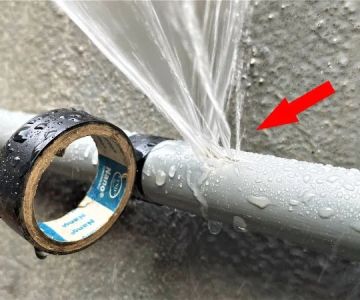
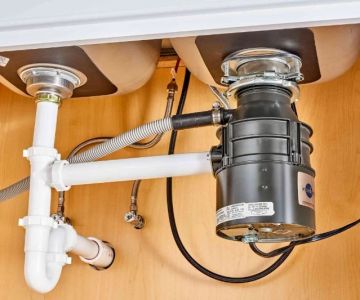
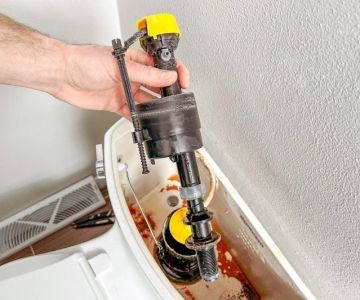
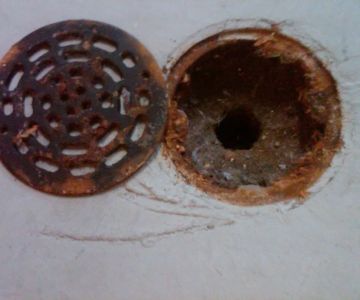
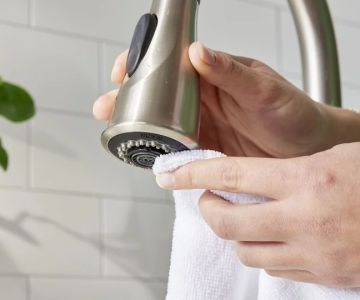
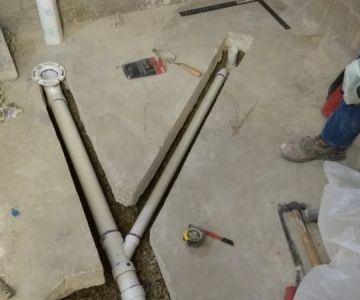
 Cordia Plumbing Inc4.0 (57 reviews)
Cordia Plumbing Inc4.0 (57 reviews) Sos Drain & Sewer Services Inc4.0 (39 reviews)
Sos Drain & Sewer Services Inc4.0 (39 reviews)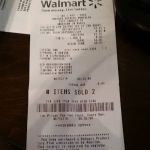 Ashton's Plumbing0.0 (0 reviews)
Ashton's Plumbing0.0 (0 reviews) Reeves Plumbing & Heating Co.4.0 (79 reviews)
Reeves Plumbing & Heating Co.4.0 (79 reviews) Alto Sewer Service - MN Drain Cleaning Company4.0 (77 reviews)
Alto Sewer Service - MN Drain Cleaning Company4.0 (77 reviews) Village Plumbing4.0 (4 reviews)
Village Plumbing4.0 (4 reviews)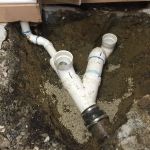 How to Reroute a Drain Line After Flooring Remodel
How to Reroute a Drain Line After Flooring Remodel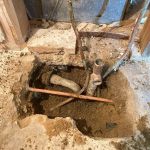 How to Repair a Junction That Is Leaking Under Slab: A Comprehensive Guide
How to Repair a Junction That Is Leaking Under Slab: A Comprehensive Guide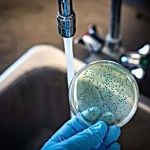 How to Test for Bacteria in Household Water Supply
How to Test for Bacteria in Household Water Supply How to Detect When Your Plumbing Is Aging: Key Signs to Watch For
How to Detect When Your Plumbing Is Aging: Key Signs to Watch For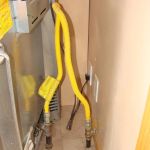 How to Replace a Fuel Line in a Gas Appliance
How to Replace a Fuel Line in a Gas Appliance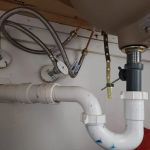 How to Repair a Sink That Drains Faster Than Faucet: Fixing Plumbing Issues Efficiently
How to Repair a Sink That Drains Faster Than Faucet: Fixing Plumbing Issues Efficiently